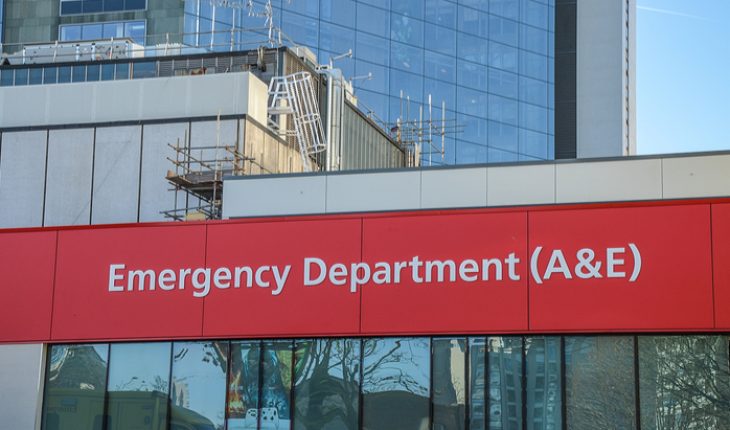Not only is it treating more patients than ever before, but A&E performance in the UK has slumped to a 10-year low.
Almost one in ten patients visiting A&E are waiting for more than four hours, while the same proportion are waiting longer than 18 weeks to begin hospital treatment, the King’s Fund think-tank revealed last month.
One of the reasons is the chronic shortage of doctors, leaving the NHS not only on a knife edge, but with an eye-watering locum bill.
A&E departments need at least 8,000 doctors – 50% more than the 5,300 currently employed – to keep up with the surge in emergency admissions over the last five years.
Despite the cap introduced last year to restrict spending on agency locums – which states they must get no more than 55% above basic pay – the vast majority of trusts have been forced to breach it in desperation.
In October, it emerged one hospital in the north of England paid more than £10,000 a week for three locum agency doctors. And the NHS spent £3.7 billion on clinical staffing last year – a rise of 15% on the year before.
Permanent staff are not only desperately needed to save cash, but to boost patient safety and staff morale.
Figures from the General Medical Council reveal locum hospital doctors attract twice as many complaints than staff doctors.
And locums’ substantially higher pay – and often fewer responsibilities – can grate on full-time staff, damaging morale and patient care.
PLUGGING THE STAFFING GAP
My business partner and old school friend, Philip Braham, and I are now tackling this thorny task of medical recruitment head on.
How? By providing trusts with permanent and fixed-term medical staff though Remedium Partners, our medical recruitment consultancy.
This reduces the need for expensive agency locums who can charge up to £150 an hour – roughly double what their permanently employed counterparts get.
Since we founded the business three years ago, the company has grown from an office in a garden shed in North London to the first consultancy placing only permanent medical staff across the NHS.
By finding fixed term or permanent overseas staff, rather than using locums, the NHS can save an estimated £150,000 per doctor, per year based on the grade of the doctor.
And to date, we believe we have already saved the NHS more than £25m.
Now being used by as many as 50 trusts, we are also the first recruitment company placing only permanent staff to be accepted as a ‘preferred provider’.
Called the NHS National Clinical Staffing Framework, it is the list of officially approved agencies which have been fully and independently audited.
Our doctors are recruited from more than a dozen countries across the world including Singapore, India and Egypt.
Successful candidates are given fixed-term or from time-to-time permanent NHS posts, most often in the specialities with the biggest staffing gaps: emergency medicine, radiology and elderly medicine.
Generally, they are SHOs, registrars and some consultants and we have a 90 per cent staff retention rate.
Potential candidates are initially interviewed before being assessed not only on their medical qualifications and capabilities, but their linguistics and the rigorous ‘IELTS’ English language test.
And while we locate potential staff – mostly candidates recommended by doctors we’ve successfully placed – it is the NHS, as the employer, which is responsible for background checks (although we do assist with this as part of our aftercare service).
For every doctor placed – Remedium assists with the entire relocation process (visas, accommodation, flights etc) – the NHS pays a one-off finders fee. This is either a fixed fee or a percentage of the candidate’s remuneration.
THE BRAIN DRAIN DEBATE
However, we strongly disagree with criticism that recruitment such as this encourages brain drain in countries abroad.
In some countries in the sub-continent and the Middle East, there is actually a surplus of doctors.
As a result, senior doctors believe their juniors benefit from experience abroad where they gain invaluable training and career development which in turn increases their ability.
Given the fact you need an exit visa to leave certain countries, if there was a concern about brain drain, the exit visas wouldn’t be granted.
However, many foreign doctors do end up settling in the UK.
Some will eventually go back to the Middle East, Australia, US, etc. But most will eventually get UK citizenship and settle with their families.
They don’t come over here for the money, it’s about the training experience. And if they do leave, it’s usually after 10-12 years.
Going forward, our company’s mission is clear: to make relying heavily on extortionately expensive locum doctors a thing of the past.
- The NHS is bracing itself for the toughest winter in a decade - 30th November 2016







